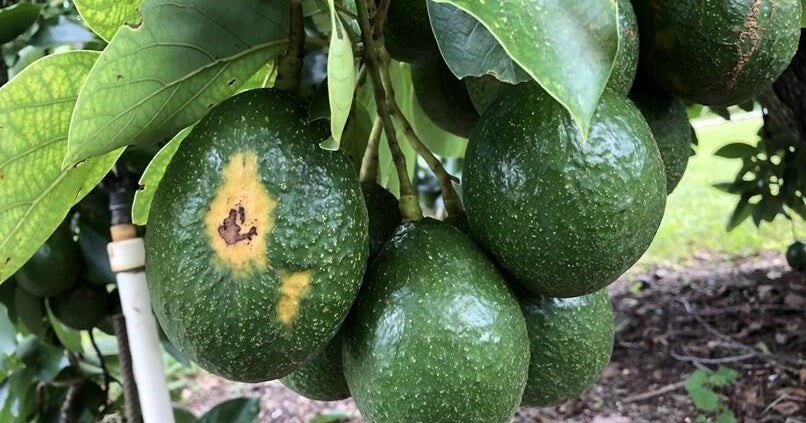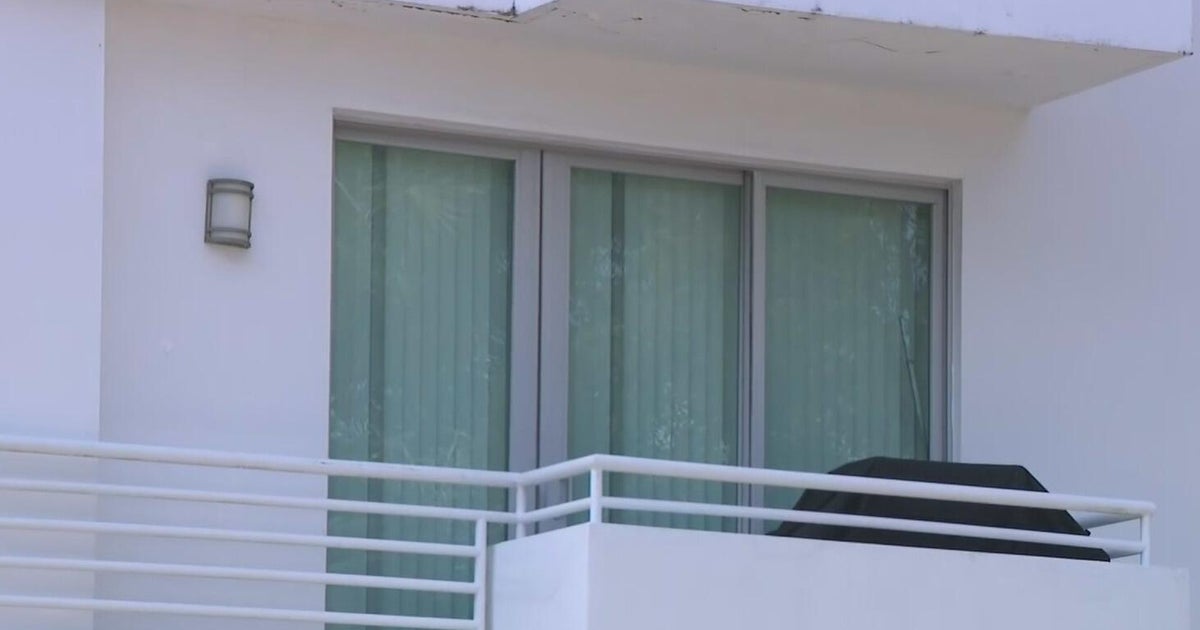If you have an avocado tree growing in your backyard, experts say you need to be vigilant about a disease that has made a comeback and can destroy your fruit.
It’s called Sunblotch Viroid, a microscopic invader that can spread easily.
CBS Miami spoke with tropical fruit specialist Dr. Jonathan Crane at the University of Florida’s Research and Education Center in Homestead about the disease. He says a local farmer spotted the disease and notified him, prompting Crane to issue a warning.
Laurel wilt wiped out half of trees
Crane has worked for decades at the research center. He says that while the laurel wilt fungus wiped out nearly half of the avocado trees in South Florida, newly planted avocado trees are now susceptible to Sunblotch Viroid.
The disease leaves deep yellow scars on the fruit.
“You can have Viroid in a tree that doesn’t show symptoms. It can spread from seeds and root stock,” Crane said.
Crane advises growers with infected trees: “If it has it, they need to properly remove the tree entirely.”
Farmers inspect trees for signs
David Maes, manager of Marando Farms and Ranch in Davie, said the operation has had no Sunblotch issues but that he inspects the organic avocado trees regularly.
“It’s always a concern. You worry you will have to dig up a row,” Maes said. “That’s what happened with the citrus greening outbreak that happened 15 years ago. Tens of millions of citrus trees had to be destroyed because of a bug.”
Serious threat to avocado production
Crane says farmers and home growers should take the Sunblotch threat seriously.
“We have to look out. Because trees can be reduced 14 to 80 percent,” he said.
If you suspect you have an infected tree, Crane says you can take leaf samples to your local agricultural extension office. For a fee, they can test for confirmation.
If you’d like more information, contact the UF/IFAS TREC Plant Diagnostic Clinic in Homestead.



